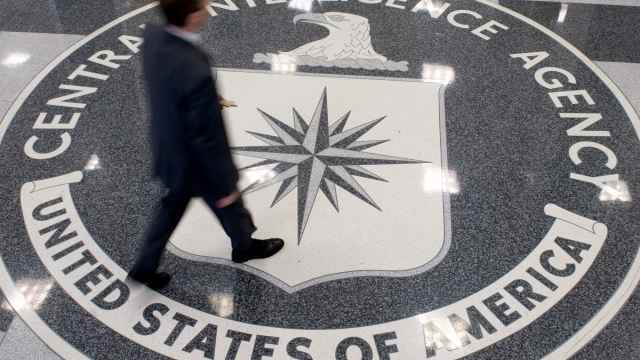The Russian economy may contract markedly this year and the country could see record capital outflow of $150 billion if the crisis over Moscow's annexation of Ukraine's Crimea deepens, the World Bank warned Wednesday.
In the first estimate by a leading international institution of the likely economic damage from the Kremlin's standoff with the West over Ukraine, the Bank said Russia's gross domestic product might shrink by 1.8 percent in 2014.
"We assume that political risks will be prominent in the short term," the Bank said in a report on the Russian economy. "If the Russia-Ukraine conflict escalates, uncertainty could rise around sanctions from the West and Russia's response to them."
The U.S. and the European Union have called the takeover of Crimea illegal, and imposed asset freezes and visa bans on selected Russian and Crimean officials. These moves, and the threat of harsher sanctions if Moscow goes further by intervening in eastern Ukraine, have shaken Russian financial markets.
The forecast 1.8 percent contraction represents the World Bank's high-risk scenario, but still assumes the international community will refrain from trade sanctions.
In an alternative low-risk scenario, assuming only a short-lived impact from the Crimean crisis, the bank sees GDP growth of 1.1 percent this year, compared with the 2.2 percent it predicted in its last report in December.
"No matter how the Crimean crisis plays out, there is the risk that the Russian government will be put back into a crisis mode to uphold macroeconomic stability," the bank said.
"It is likely that policy choices will be about managing short-term issues, and the medium-term agenda of structural reforms will continue to take a back seat."
Crisis of Confidence
Russian assets have rebounded this week, calmed for now by signs that the crisis may ease. But the situation remains fragile.
"An intensification of political tension could lead to heightened uncertainties around economic sanctions and would further depress confidence and investment activities," the World Bank said in its report.
"Recent events around the Crimea have compounded the lingering confidence problem into a crisis of confidence," said Birgit Hansl, the Bank's chief economist for Russia. The issue is "the decisive factor affecting Russia's economic outlook," she told a news conference.
Deteriorating confidence has already led investors to transfer massive sums outside Russia. The Economic Development Ministry estimates net capital outflow at up to $70 billion in the first quarter alone, compared with $63 billion in the whole of last year.
In the bleaker of its scenarios, the World Bank envisages capital outflow at $150 billion this year and $80 billion in 2015. This year's forecast exceeds the $120 billion in capital flight that Russia saw in 2008 during the global financial crisis.
The outflow of money will put further pressure on the ruble, which despite its recent firming is still 7 percent down against the dollar this year.
"We assume the ruble depreciates both in 2014 and 2015 and we see a high volatility in its exchange rate," Hansl said.
The weakening of the currency is likely to put upward pressure on inflation, which the World Bank sees at 5.5 percent in 2014, higher than the upper end of the Central Bank's targeted range of 4.0 to 5.0 percent. Meeting the target would require further monetary tightening, the Washington-based Bank said.
Low-Risk Scenario
The Economic Development Ministry has yet to revise its early 2014 growth forecast of 2.5 percent for the year, but a deputy minister said on Monday that it was anticipating GDP growth of "around zero" for the first quarter.
In its low-risk scenario, the World Bank expects Russia's economic growth to inch up to 1.3 percent next year. The high-risk scenario envisages 2.1 percent growth, largely due to a low base this year.
"If there is an orderly resolution to the Crimean crisis, the economy would recover in 2015," the Bank said.
"Nevertheless, there would remain some tail risk of continued tensions, which would adversely affect growth over a longer period.
A Message from The Moscow Times:
Dear readers,
We are facing unprecedented challenges. Russia's Prosecutor General's Office has designated The Moscow Times as an "undesirable" organization, criminalizing our work and putting our staff at risk of prosecution. This follows our earlier unjust labeling as a "foreign agent."
These actions are direct attempts to silence independent journalism in Russia. The authorities claim our work "discredits the decisions of the Russian leadership." We see things differently: we strive to provide accurate, unbiased reporting on Russia.
We, the journalists of The Moscow Times, refuse to be silenced. But to continue our work, we need your help.
Your support, no matter how small, makes a world of difference. If you can, please support us monthly starting from just $2. It's quick to set up, and every contribution makes a significant impact.
By supporting The Moscow Times, you're defending open, independent journalism in the face of repression. Thank you for standing with us.
Remind me later.





